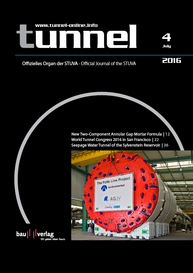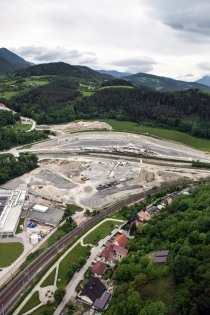Federal Administrative Court declares City of Stuttgart‘s co-financing of S 21 constitutional
The German Federal Administrative Court, sitting in Leipzig, ruled on 14 June 2016 as the final court of appeal that the involvement of the federal state and the respondent, the state capital of Stuttgart, in the financing of the Stuttgart 21 rail project does not constitute “inadmissible co-financing of third-party public works”. The court thus declared inadmissible a citizens‘ initiative, via which the opponents of the project hoped to achieve a referendum on the state capital’s withdrawal from its contractually agreed financial obligations.
“This verdict by the Federal Administrative Court now means that there is a chance of finding a rational solution for financing of the extra costs of Stuttgart 21”, commented Peter Sturm, CEO of
DB Projekt Stuttgart–Ulm GmbH. The project participants had laid down in the financing agreement signed in 2009 for the Stuttgart 21 rail project that Deutsche Bahn AG (German Railways) and the federal state should enter negotiations if the project costs exceeded 4.526 billion euros.
On 5 March 2013, the Deutsche Bahn AG supervisory board approved an overall cost estimate of 5.987 billion euros for the restructuring of the Stuttgart 21 rail hub, plus a further 539 million euros as a contingency buffer. The overall financial scope of Stuttgart 21 has, since this date, been 6.526 billion euros.
State capital Stuttgart cooperates on and is involved in the financing of Stuttgart 21 via a series of contracts made between the project participants between 1995 and 2009. In 2011, the plaintiffs, representing a citizens’ initiative signed by more than 35 000 Stuttgart residents, petitioned for the holding of a referendum on “Withdrawal of the City from the Stuttgart 21 project”. Their aim was to oblige the city to cite to its project associates the alleged unconstitutionality of its co-financing activities and to refrain from making any further payments toward the project. The state capital’s municipal council declined the admission of the initiative. The legal action by the initiative’s representatives was then dismissed at the initial and second hearings; subsequent appeals also failed.






